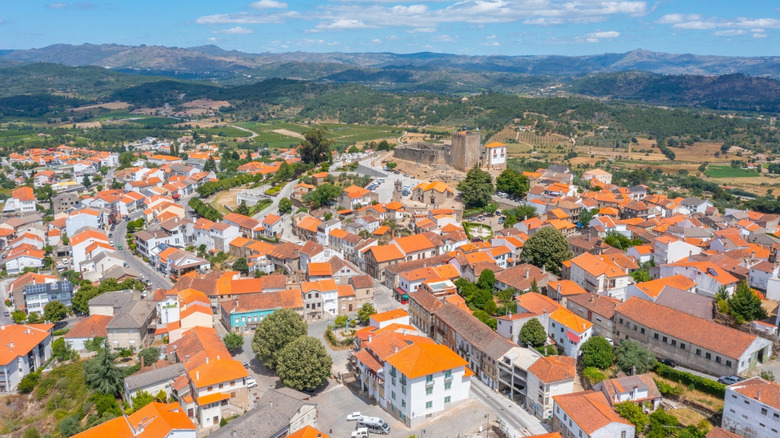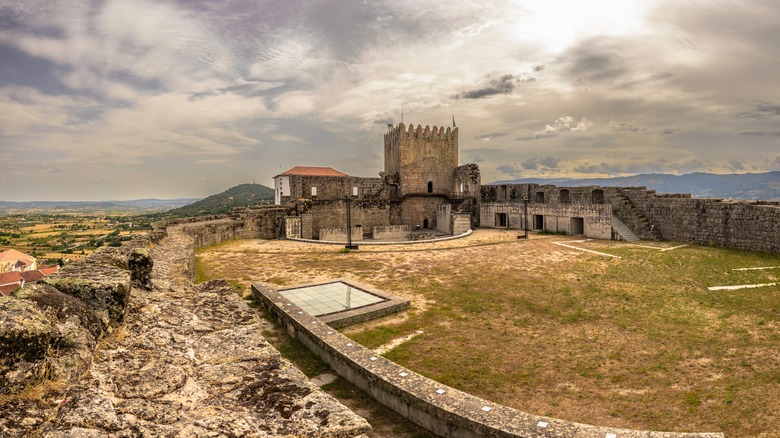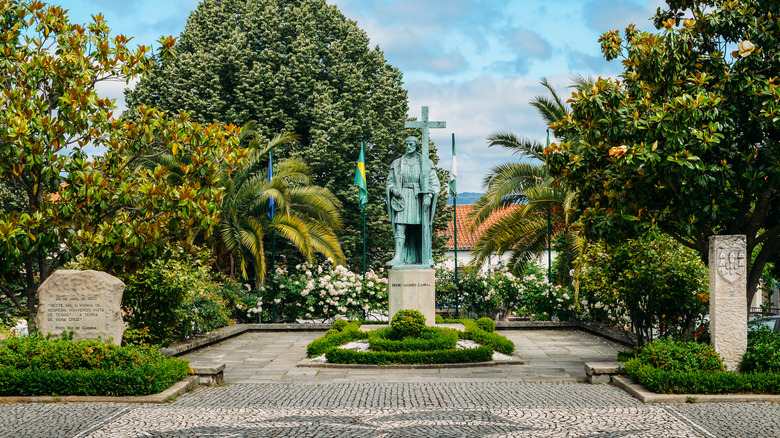Portugal's Unique Historic Spot Has A Strong Jewish Presence, Medieval Castle, And Scenic Landscapes
Tucked away in the rarely-visited Portuguese region, the Greater Côa Valley, Belmonte is a historic town bursting with charm and a storied past. Known largely for its picturesque castle and Jewish community, this hillside medieval village isn't part of the typical Portugal tourist trail. But thanks to its unique charm and gorgeous views, Belmonte needs a spot on your Portugal itinerary.
To get here from Lisbon, you can take a four-hour bus or train ride, or rent a car and drive for around three hours. Buses are also available from Porto, and will take around three hours and 20 minutes, or save an hour by driving. And don't worry, this under-the-radar town is more than worth the travel time. For a stay steeped in history, the Pousada Convento Belmonte is an unforgettable choice. The former 13th-century convent offers incredible views of the Serra da Esperança Mountains while also featuring amenities like a pool and an onsite restaurant serving local cuisine.
A medieval castle and historic Jewish quarter
At the heart of Belmonte is its fairytale-like medieval castle, which was built around the 13th century and is a must-visit. Initially, the castle was built by King Afonso III as a defense against the Castilians. But a couple of centuries later, the Belmonte Castle became a residence for the Cabral family — which included Pedro Álvares Cabral, an explorer who in 1500, became known as the first European to reach Brazil. The castle is open Tuesdays through Sundays, and costs two euros to visit. While you're here, don't forget to look at the double-arched Manueline window, where you can see the Cabral family coat of arms.
And below the castle walls is a step into some of Belmonte's most fascinating history. Today, Belmonte is home to what is likely Portugal's largest Jewish presence, a legacy which stretches back centuries. When the Portuguese Inquisition of the late 1400s and beyond forced many Jewish residents to either convert to Christianity or leave the country, Belmonte actually became a refuge for a small but significant Jewish community. Within the Jewish Quarter, Judaism was practiced in secret all the way up to 1974, when the Portuguese revolution ended the country's dictatorship and brought freedom of religion. Visitors can explore the history by walking through the cobblestone streets, peering at the stone engravings, stopping by the synagogue built in 1996, and touring the Museu Judaico De Belmonte, known as Portugal's first Jewish museum, which covers this complex history more in depth.
A town rich in history and incredible landscapes
While here, be sure to walk through Largo do Pelourinho, the town's historic square, which includes a 15th-century town hall. Other worthwhile excursions include the Museu dos Descobrimentos, or Museum of the Discoveries, which is dedicated to Belmonte's most famous resident, Pedro Álvares Cabral, and Portugal's maritime history. The Zêzere EcoMuseu – all about the ecosystems along the Zezere River — is another interesting stop, as is the Olive Oil Museum (or Museu do Azeite). Just north of town, history buffs shouldn't skip a visit to Torre de Centum Cellas, a Roman tower whose purpose remains a mystery to historians.
With an incredible mountain backdrop, venturing further into Portugal's nature is also one of Belmonte's unforgettable highlights. Serra da Estrela Nature Park is about an hour away from town and is home to Portugal's highest peak, along with serene lagoons, pastures, forests, and springs. For some scenic nature closer to town, Belmonte's River Beach (known as Praia Fluvial de Belmonte) is a quiet spot for picnicking, swimming, or relaxing. If you're looking to add more quaint and off-the-beaten-path towns to your Portugal itinerary, Aveiro is known as the "Venice of Portugal" with fairytale charm, and Zambujeira do Mar in the Alentejo region just may be Portugal's dreamiest cliffside town.


